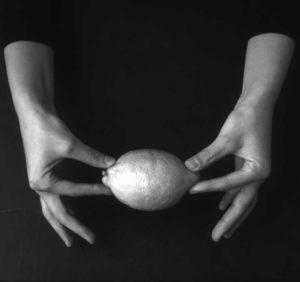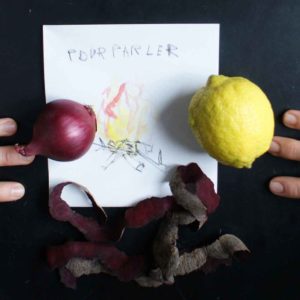Hi there!
Hope you’re feeling connected and alive with new adventures, travels and experiences as we move into late summer. Inspired by my creativity workshop on food waste reduction, I thought I’d share two simple recipes with you for using leftovers.
 Lemons are an ongoing theme in my drawings and photography, but lemons and oranges also offer a wonderful option for making a multi-use cleaning product. After you’ve made lemonade or seasoned fish, just put your leftover citrus into a jar filled halfway up with any simple vinegar. Press down until the fruit is covered. Close the jar and add more lemon and orange peels over time. Once the jar is full, place it in a sunny spot for about 2-3 weeks. Remove the fruit and use the liquid offering a bright scent and disinfectant benefits.
Lemons are an ongoing theme in my drawings and photography, but lemons and oranges also offer a wonderful option for making a multi-use cleaning product. After you’ve made lemonade or seasoned fish, just put your leftover citrus into a jar filled halfway up with any simple vinegar. Press down until the fruit is covered. Close the jar and add more lemon and orange peels over time. Once the jar is full, place it in a sunny spot for about 2-3 weeks. Remove the fruit and use the liquid offering a bright scent and disinfectant benefits.

Now, on to something you can eat. We all love crème fraîche for potatoes, dips and sauces. I have a recipe that takes leftover onion skins and vegetable peels and adds a depth of flavor to crème fraîche that delights the senses.
You can use the peels of onions, beetroot, carrots, parsnips and apples. Rhubarb, leek greens, the outer leaves of radicchio, red cabbage, Tuscan kale and celery leaves also work well. Even pumpkin scrapings and seeds do the trick! In summer you can dry everything in the sunshine or use a dehydrator during winter. When dried, pulverize the ingredients with a blender or a mortar and pestle.
If you’re not familiar with it, crème fraîche is cream with added lactic acid bacteria. This converts the milk sugar into lactic acid. This process can easily be mimicked at home with a little buttermilk.
Combine 250ml whipping cream and 2 tablespoons buttermilk in a glass jar.
Cover – closing the lid lightly – and let stand at room temperature for 8 to 24 hours, or until very thick. You might have to stir the mixture if it only thickens on the top. The crème fraîche is ready when it becomes quite thick and gives off its typical light sour smell. Stir well before covering and refrigerate for up to 14 days. Mix in your dried vegetable powder to create layers of flavors. You can experiment with different colors and tastes.

If you’d like more inspiration for ways to use leftovers, I recommend Cooking With Scraps written by Lindsay-Jean Hard. You’d be surprised at the possibilities with the liquid from a can of beans or leftover apple cores! Curiosity in the kitchen can help make what seems like a daily chore into something more dynamic and rewarding.
Wishing you creativity and expansiveness.
Ines
Pingback: Food waste reduction: going bananas! - Ines Lechleitner